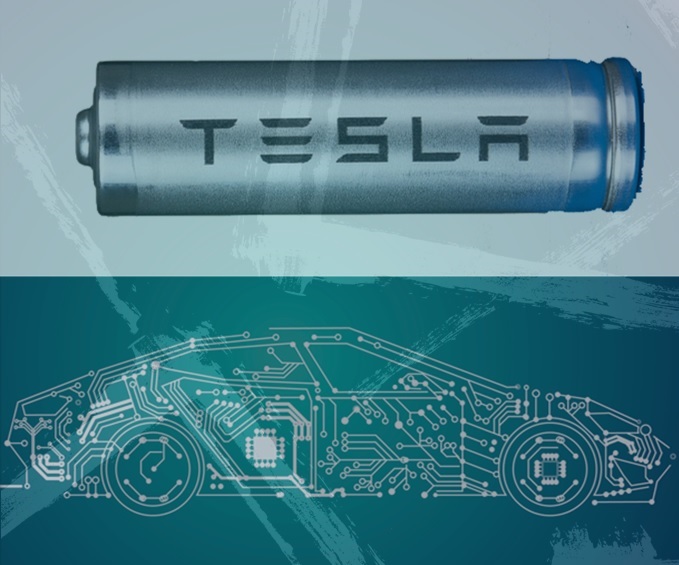Tesla’s Battery Plans and Privacy Woes Tesla has been making headlines recently with two major announcements.
The first is that the company is planning to build a new battery factory in Texas,
which is expected to be the largest in the world.
Topics
Tesla’s New Iron-Based EV Batteries
Tesla’s Disappointing Delivery News Sends Shares Sliding
CATL’s LFP Batteries means for Tesla
Tesla’s New Iron-Based EV Batteries
Tesla’s Battery Plans and Privacy Woes, the electric vehicle (EV) giant,
has announced its plans to install iron-based batteries
in a new version of its affordable electric vehicle and a semi-heavy electric truck.
These new batteries are not only cheaper than the traditional lithium-ion batteries
but also less of a fire hazard, according to recent reports.
The move towards iron-based batteries is a significant step forward for the electric vehicle industry.
Lithium-ion batteries, which are currently used in most EVs,
are expensive and can be a safety hazard due to their tendency to catch fire.
Iron-based batteries, on the other hand, are much safer and more affordable,
making them a viable alternative for electric vehicles.
Tesla’s announcement comes as part of its ongoing efforts to make EVs more affordable for consumers.
Iron-based batteries are cheaper to produce than lithium-ion batteries,
which could help reduce the cost of EVs and make them more accessible to a wider range of consumers.
In addition to being cheaper, iron-based batteries also offer several other advantages over lithium-ion batteries.
They are more durable and have a longer lifespan,
which means they can be used for longer periods of time before needing to be replaced.
They are also more environmentally friendly, as they contain fewer toxic materials than lithium-ion batteries.
The move towards iron-based batteries is part of a wider trend in the EV industry towards
more sustainable and cost-effective battery technologies.
Tesla’s Disappointing Delivery News Sends Shares Sliding
Tesla, the electric vehicle (EV) maker, has seen its shares slide after it reported
lower-than-expected deliveries for the second quarter of 2021.
The company said it delivered 201,250 vehicles during the quarter,
missing analysts’ estimates of 207,000 deliveries.
The disappointing delivery numbers came as a surprise to many investors,
who had expected Tesla to continue its strong growth trajectory.
The company had previously reported record deliveries in the first quarter of 2021,
and many analysts predicted that Tesla would continue to outperform its competitors in the EV market.
The news sent Tesla’s shares down by more than 2% in early trading on Monday,
although they later recovered to close down by just 0.6%.
The drop in share prices reflects concerns among investors that Tesla’s growth may be slowing down,
and that the company may be facing increasing competition from other EV manufacturers.
Despite the lower-than-expected delivery numbers, Tesla remains optimistic about its prospects.
The company recently announced plans to introduce new,
affordable electric vehicles that will be powered by iron-based batteries.
These batteries are not only cheaper than the lithium-ion batteries currently used in Tesla’s vehicles,
but they are also less of a fire hazard.
CATL’s LFP Batteries means for Tesla
China’s Contemporary Amperex Technology Co. (CATL) has emerged
as a leading supplier of lithium iron phosphate (LFP) batteries to Tesla,
as the electric vehicle (EV) manufacturer looks to reduce the cost of its batteries and increase production.
LFP batteries are cheaper and safer than traditional lithium-ion batteries
and have become increasingly popular in the EV industry.
Tesla has been working with CATL since 2020, and the Chinese battery maker
has become a key supplier of LFP batteries for Tesla’s Model 3 and Model Y vehicles.
The partnership has helped Tesla reduce the cost of its EVs, making them more affordable for consumers.
In addition to CATL, LG Energy Solution out of South Korea has also announced plans
to manufacture LFP batteries at a proposed factory in Arizona. The factory,
which is expected to begin production in 2023, will produce batteries for electric vehicles and energy storage systems.
The move towards LFP batteries is part of a wider trend in the EV industry
towards more affordable and sustainable battery technologies. LFP batteries are cheaper
and more environmentally friendly than traditional lithium-ion batteries,
which are more expensive and have a higher environmental impact.
While LFP batteries are not as energy-dense as lithium-ion batteries,
they are still capable of providing sufficient power for most EVs.
In fact, many automakers are now exploring the use of LFP batteries in their vehicles,
as they offer a compelling combination of cost, safety, and sustainability benefits.
In addition, LFP batteries are also more durable and have a longer lifespan than traditional lithium-ion batteries,
which means they can be used for longer periods of time before needing to be replaced.
The shift towards LFP batteries is also a reflection of the growing demand for EVs around the world.
As more consumers switch to electric vehicles, automakers are looking for ways to reduce costs
and increase production to meet this demand. By using cheaper and more sustainable battery technologies,
they can offer more affordable EVs to consumers, which could help accelerate the transition to a low-carbon economy.
In conclusion, the partnership between Tesla and CATL,
as well as the plans for LG Energy Solution to manufacture LFP batteries in Arizona,
represent an important step forward for the EV industry.

